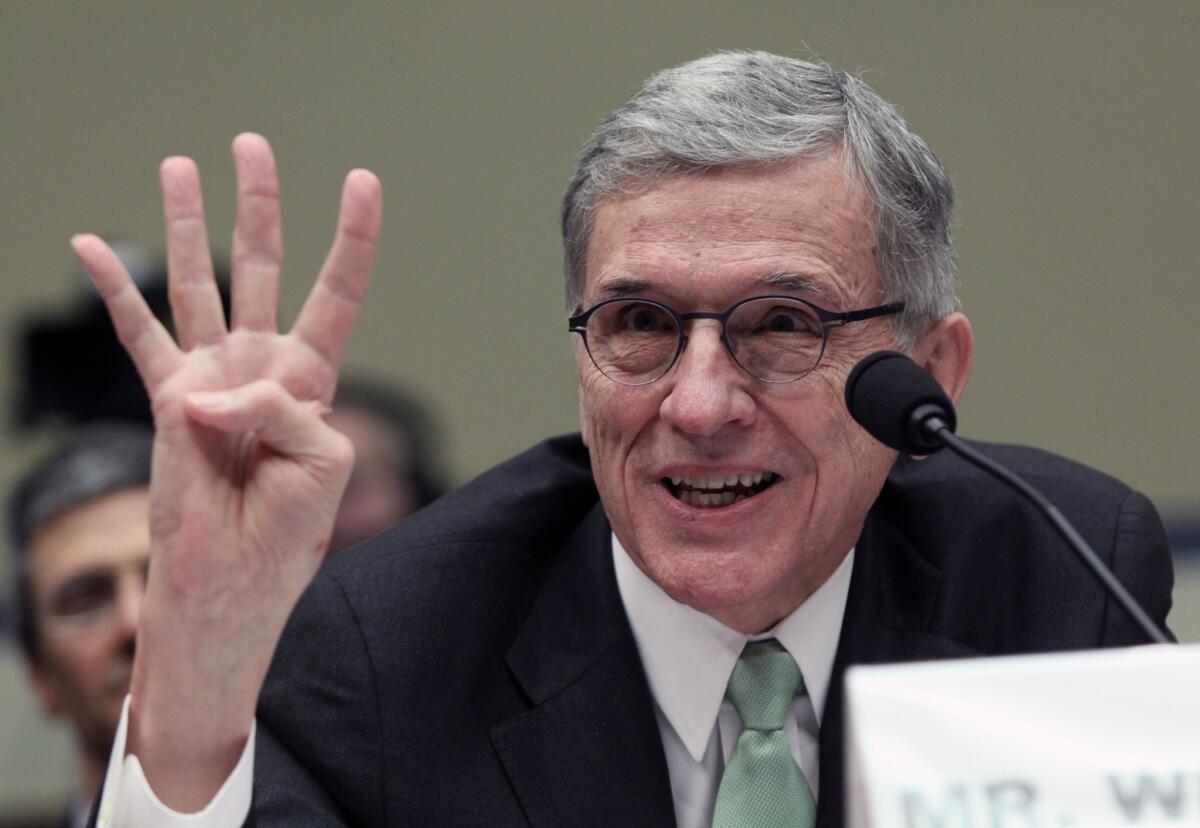Top GOP lawmaker calls net neutrality ‘politically generated populist furor’

A top House lawmaker chastised the Federal Communications Commission for giving in to a “politically generated populist furor” in adopting tough net neutrality regulations.
Rep. Greg Walden (R-Ore.), chairman of a House Energy and Commerce subcommittee that oversees the agency, accused interest groups Thursday of ginning up public comments to the agency.
The FCC, in turn, he argued, overreached its authority in creating the rules, which are aimed at ensuring the free flow of Internet traffic. Walden also predicted that the new classification of broadband as a utility would hinder investment in the technology.
In addition, he repeated Republican allegations that FCC Chairman Tom Wheeler improperly coordinated with President Obama to put the controversial rules in place. Obama has been an outspoken supporter of net neutrality regulations since his days in the Senate.
“A properly functioning commission doesn’t work behind closed doors with the president to bypass the administrative process, and a properly functioning commission doesn’t make decisions based on the number of click-bait emails that interest groups can generate,” Walden said during a subcommittee hearing with all five FCC commissioners.
“A properly functioning commission focuses on law and facts to generate thoughtful and legally sound analysis rather than being carried away by politically generated populist furor,” he said.
Wheeler appeared at a congressional hearing for the third-straight day — all called by Republicans who strongly oppose the new regulations. He is scheduled to appear at two more committee hearings next week.
GOP lawmakers object to the FCC’s decision three weeks ago to expand the agency’s authority over broadband by classifying it as a more highly regulated telecommunications service.
In November, Obama publicly called for the FCC, which is an independent agency, to take that approach.
Wheeler, a Democrat, testified this week that he received no “secret instructions” from the White House as he drafted the net neutrality proposal, which the FCC approved on a 3-2 party-line vote.
Obama and Democrats have cited the outpouring of public support for the regulations, which prohibit broadband providers from blocking, slowing or selling faster delivery of legal content on their networks.
The FCC said the majority of those comments favored the type of rules the agency adopted.
Rep. Anna Eshoo (D-Atherton), a member of the House committee, said the FCC’s decision was a victory for “the regular guys and gals across our country.”
“Decision makers actually took in and considered the advice of over 4 million Americans,” said Eshoo, whose Silicon Valley district includes major Internet firms that supported the FCC’s action.
“I think that kind of public engagement with our government should be celebrated and not rolled over and disrespected,” she said.
Many public interest and digital rights groups urged Americans to tell the regulators to take aggressive steps to oversee Internet traffic, and comments last summer overwhelmed the agency’s online system.
Wheeler said this week that the FCC has not determined how many of those comments were automatically generated based on form letters or online templates.
“They lit up our phone lines, clogged our e-mail in-boxes and jammed our online comment system,” said Commissioner Jessica Rosenworcel, a Democrat who voted for the rules.
“That might be messy, but whatever our disagreements are on network neutrality, I hope we can agree that’s democracy in action and something we all can support,” she said.
Republicans remained skeptical. Walden is pushing legislation that would avoid the expected legal threats to the FCC’s regulations.
The bill would enact the same anti-discrimination prohibitions on Internet content as the FCC put in place while limiting the FCC’s authority on broadband providers to avoid potentially heavy-handed regulation.
Rep. Frank Pallone (D-N.J.) said he would consider working on legislation, but wondered if that was possible given the sharp Republican criticism of Wheeler in hearings this week.
“I remain open to looking for truly bipartisan ways to enshrine the FCC’s network neutrality protections into law,” he said.
Follow @JimPuzzanghera on Twitter







